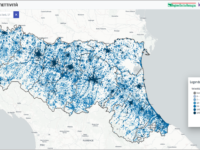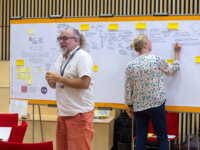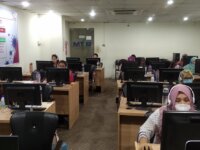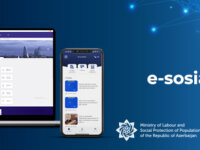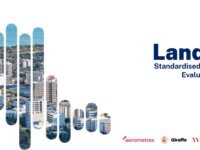Emilia-Romagna’s Digital Agenda led a significant innovation process for public administration decision-making. The process resulted in a co-design phase with local administrations to structure and publish online the first geo-referenced regional Observatory on ultra-broadband connectivity in Italy. Multi-stakeholder participation made it possible to identify and highlight the various strengths and weaknesses of the tool, enabling its optimisation.
Innovation Tag: Public Service Delivery
The Local Wealth Building Challenge Fund is designed to provide financial and non-financial support to develop new products and services to tackle challenges. One aspect of this Challenge Fund which is unusual is the focus on developing innovations that will be procured by the challenge holder, providing additional incentives and focus. Public and third sector organizations often have issues that can be solved not by getting new skills or more workers, but by being innovative. The Challenge…
The pandemic has caused a significant increase in amount of people living on the street, who often have no documents and makes access to justice difficult. Pop Rua Jud brought together justice organisms and other public agencies in the same place to prevent citizens from being referred from one public agency to another, without solving their problem. It was innovative in that it brought together almost 50 federal, state and municipal public institutions, as well as civil society organisations,…
The municipality of Florianópolis and TopMed have innovated health care with the creation of Hello Health Floripa (Alô Saúde Floripa). The service is designed to fulfil the principle of universality, guaranteeing access to healthcare for 100% of the population. Using digital channels (phone or app), it connects any citizen to a health professional, 24 hours a day, without need of travelling. The innovation also organises access to health, generates savings and balance for public health. The…
Citizens travelling on federal highways do not have fast and reliable internet access in the vicinity of the operational and administrative units of the Federal Highway Police. In many regions of Brazil, the 3G/4G internet signal is practically null, and the units of the Federal Highway Police are, in some cases, the only point with access to the world wide web. Through this project, the Government expanded free internet access for citizens in these areas by authentication via the gov.br…
Being a densely populated country with inadequate healthcare infrastructure, providing treatment to COVID patients and keeping them in the hospital while maintaining social distance to prevent rapid community level transmission proved to be a difficult task. Therefore, COVID-19 Telehealth Center was established to ensure healthcare for COVID positive patients from their home, just a call away.
Case Study
School-Effect Indicator: An analysis of schools, using artificial intelligence, according to the…
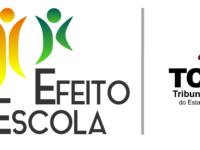
The São Paulo State Court of Auditors built a new analysis methodology, the School-Effect Indicator (IEE), which includes factors such as the socioeconomic status of students in the evaluation of school effectiveness. Through Artificial Intelligence (AI), it is calculated how much the school has contributed to the competence of its students, highlighting the principle of equity, recognizing the needs of each school group and working to reduce the impact of differences.
The "e-sosial" portal is Azerbaijan's first official Unified Social Register, created and managed by the Ministry of Labour and Social Protection of Population. This user-friendly online platform enables citizens to access comprehensive information about their social protection entitlements and benefits, allowing for continuous monitoring of their labor, employment, and social protection rights. It comprises all services of the Ministry in real-time and proactively renders services to users.
The techDetector is the first technology radar giving an overview of emerging technologies that have the potential to influence the area of sustainable development in the future. It lists future technologies from all sectors of sustainable development and assesses their potential impact on sustainability and gender equality. The techDetector helps inform, sensitize and support foresight processes, enabling better decision-making by providing sound information on technological developments.
The NSW Government has developed a whole of government spatial tool to improve planning and pre-development processes. The tool modernises the traditional approach to strategic planning, site assessment & land use evaluation and provides user friendly access to GIS capabilities where multiple agencies can work together on a project in NSW public sector. Through this, government agencies are enabled to make faster, better informed, more transparent and consistent decisions on NSW land.

